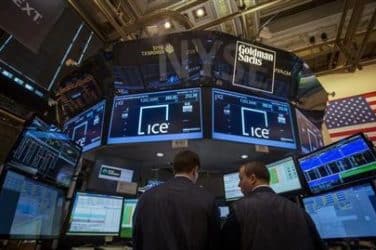
This article first appeared as FLASH FRIDAY on Traders Magazine. FLASH FRIDAY is a weekly content series looking at the past, present and future of capital markets trading and technology. It is sponsored by Instinet, a Nomura company.
With growing retail investor awareness of, and education about available alternative products, active investors are looking to expend their self-directed trading into market sectors beyond traditional equities.

Earlier this month, Robinhood announced they will begin offering futures and index options trading for retail investors across their platform.
“Futures were highly requested by our more active and advanced traders, and we’ve built them with an intuitive, easy to use experience,” commented Adam Hickerson, Senior Director of Futures at Robinhood.
“They allow you to trade broad based indices, virtually 24-five, around the clock in a very liquid and robust marketplace – we fundamentally believe in opening up access to products like these, so that everyone can trade or manage their risk around the clock,” he told Traders Magazine.
Robinhood is one of many new entrants into the futures market, according to Martin Franchi, CEO of NinjaTrader: “With each new player, we’ve seen greater collaboration and advocacy for an under-served community.”
“We welcome new participants to help modernize regulations, develop innovative exchange products, and shine a bright light on this exciting asset class,” he added.
Robinhood’s active trader announcement was a strategic move to retain investors who might otherwise transition to multi-asset class platforms geared toward active traders, Franchi said.
“It’s a smart decision to protect their core business, which has likely seen its most active customers seeking advanced tools elsewhere,” he added.
The futures markets have shown an increase in retail participation, especially in micro-sized contracts, according to FIA’s President and CEO Walt Lukken. “Better technology and lower commissions are a big reason for that trend, but more importantly, there seems to be a generational shift in customer behavior,” he wrote in a blog.
“The Millennials, Gen Z and now Gen Alpha aren’t satisfied with owning index funds and the classic “buy and hold” strategies. They want to be more directly engaged with markets and they are seeking out brokers that offer the best tools for their trading. They may be young, but this trading segment is here to stay,” he added.
However, according to Jay T Vanerstrom, FVP – Director Derivatives Trading, Capis, many retail investors are not currently using futures, or doing so mainly through a more passive investment in professionally managed commodity funds.
Futures trading requires a higher level of investor sophistication (knowledge of product construction and dynamics; risk tolerance; active trade re-evaluation monitoring) that is usually attractive to only active, well-funded retail investors, he told Traders Magazine.
“For someone wanting invest in energy, currencies, metals or non-dollar stock indices, futures give an avenue of direct investment into these products,” he said.
With futures and equity index options, one can also get exposure to market reversals (downward market action) that is easily duplicated using stocks, Vanerstrom said.
“As with other “hot new things”, jumping in too quickly without proper research can lead to unwanted results,” he said.
“To borrow an analogy from the construct industry: Dynamite can be a highly useful tool to get some jobs done; however, when employed by the untrained or careless user, it’s likely to blow up in their face,” he added.
Vanerstrom thinks that Robinhood’s model of low-cost trading, combined with easier market access through their trading app, is likely to create an opportunity for retail interest not currently available through traditional futures and index options brokers.
“With the nature of such markets providing a level of leverage and open-ended risk in some products that require a higher level of market insight, futures and index option products will be appropriate for only a small sub-set of Robinhood’s most sophisticated customers,” he said.
For the brokerage firm, the expanded move into futures will also translate into a need to educate (and monitor) the new clients on potential risks they likely have not faced in previous investing experiences, he added.

“Overall effect on the futures and index markets is not likely to be a huge boost to trading volumes, as this market is mostly driven by the activity of large institutional investors,” Vanerstrom said.
“A more likely result to the futures industry will be to create some competition from traditional futures brokers to provide lower cost and more open access for the retail client sector,” he added.
Meanwhile, Franchi thinks that “we’re at a pivotal moment, similar to the rise of self-directed equities trading led by platforms like eTrade, which was followed by the growth of retail equity options trading championed by Think-or-Swim, OptionsHouse, and OptionsXpress”.
“Futures represent the pinnacle of the trader journey, which typically starts with a mobile experience in simpler asset classes,” he said.
Franchi added that as platforms begin to modernize retail futures experiences, and as exchanges continue to prioritize new product development, “the exponential rise of this asset class shows no signs of slowing down”.






